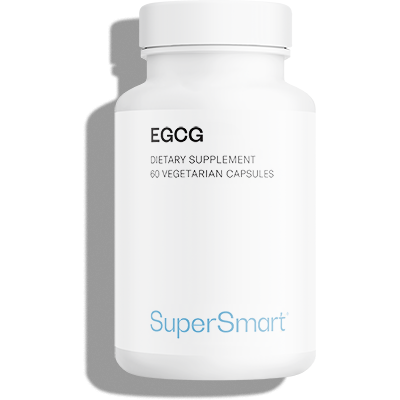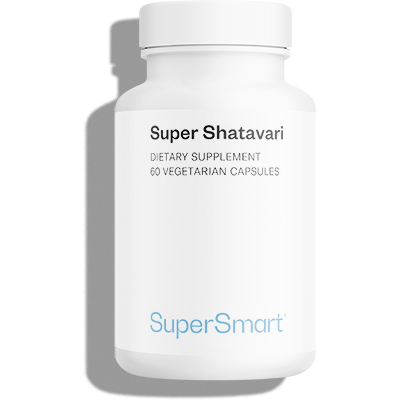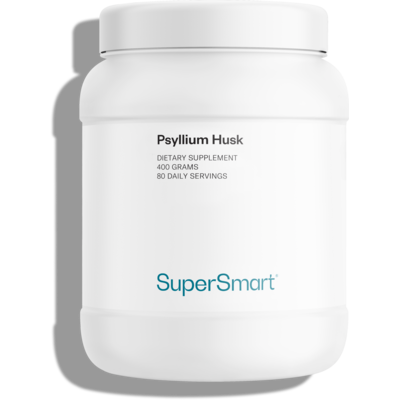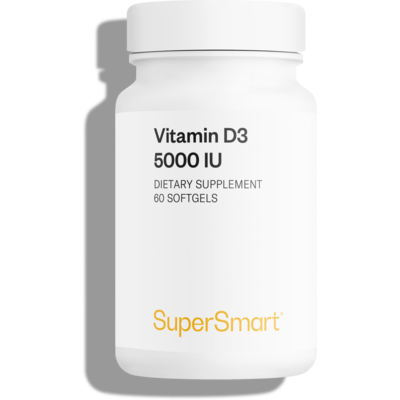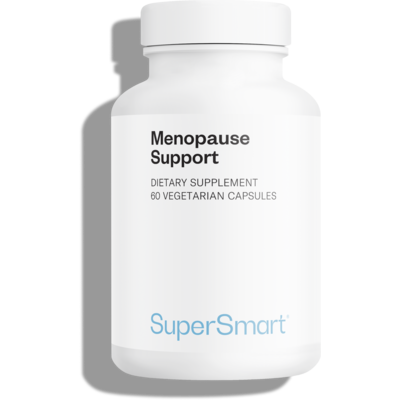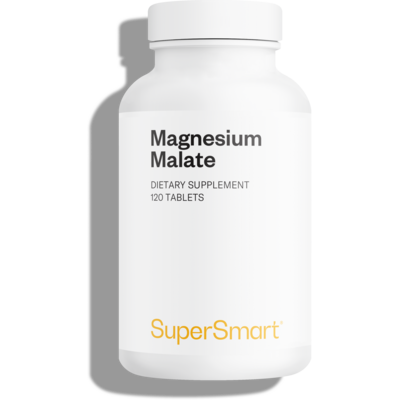Menopause: what diet to adopt to relieve it?
The menopause can cause a host of unpleasant symptoms: hot flushes, insomnia, irritation, etc. Find out how to adapt your eating habits to help relieve these symptoms and maintain your health.

The link between menopausal symptoms and diet
Hormonal changes and their impact on everyday life
Let's start by reminding ourselves that the menopause is the period in a woman's life that marks the end of her ability to reproduce.
In short, it's the point at which she stops menstruating for good.
The menopause generally occurs between the ages of 45 and 55 and results from the gradual decline in the production of the main female hormones (oestrogen and progesterone) by the ovaries.
For many women, this leads to physiological changes that cause a variety of symptoms:
- sudden hot flushes with redness and sweating
- sleep disturbances, often linked to nocturnal hot flushes
- mood swings: irritability, sadness, sometimes depression
- vaginal dryness causing discomfort during sexual intercourse
- weight gain and changes in the distribution of body fat, particularly around the stomach
- reduced bone density (osteoporosis)
- increased risk of cardiovascular problems
A balanced diet adapted to the menopause
During the menopause, adopting the right diet can go a long way towards supporting your hormonal balance and reducing inflammation (to limit hot flushes, insomnia, etc.), maintaining your bone and heart health, controlling your weight and preserving your psychological well-being, which is particularly challenged at this time.
Foods to eat during the menopause
Sources of magnesium to combat fatigue and improve mood
Magnesium is a mineral that helps maintain psychological functioning by promoting the production of serotonin and reducing the production of cortisol (the stress hormone).
It also plays a part in the normal functioning of the nervous system by helping to stabilise neuronal membranes and supporting muscle relaxation, which in turn reduces nervous tension and improves sleep quality.
Magnesium also helps to reduce fatigue caused by the menopause, by promoting cellular energy production.
It can be found in dark chocolate, nuts, seeds, wholegrain cereals or in supplements (such as Magnesium Malate and the synergistic menopause formula Menopause Support).
Antioxidants to combat inflammation
Choose antioxidant-rich fruit and vegetables such as raspberries, kiwi fruit, oranges, tomatoes, plums, spinach and red cabbage.
The aim is to reduce oxidative stress and inflammation caused by the menopause, and support cardiovascular and cellular health as we age.
Green tea is also a great source of the antioxidant EGCG (see the EGCG supplement for increased intake).
Calcium and vitamin D to maintain bone health
Oestrogens help maintain bone density by slowing down the cells that destroy bone (osteoclasts) and supporting those that rebuild it (osteoblasts).
However, at the menopause, when oestrogen levels plummet, this protective effect is cancelled out and bone loss accelerates.
For the sake of your bone health, you need to fill up on calcium, a crucial mineral that helps maintain normal bones. You can find it in a variety of foods, particularly dairy products (yoghurt, cheese, milk, etc.) and green vegetables, but also in almonds and certain seeds.
Vitamin D, for its part, is also essential as it helps to maintain normal blood calcium levels (in particular by promoting the absorption of calcium in the intestine). While your body naturally synthesises vitamin D when the skin is exposed to sunlight, you can also find it in oily fish, eggs and some mushrooms.
You can also significantly increase your vitamin D intake by taking a dietary supplement (such as Vitamin D3 5000 IU or the Menopause Support formula).
Dietary fibre: weight and hormone balance
Dietary fibre has the ability to retain water, making it easier to digest and move the bolus of food through the digestive tract.
When included in every meal, it plays a direct role in preventing constipation (1), but that's not all!
It also contributes to better weight management by providing a lasting feeling of satiety (2) without providing too many calories, as the glycaemic index of foods containing it is generally low. This can help menopausal women avoid excessive weight gain.
Better still, fibre helps to balance the intestinal microbiota, which is essential for hormone regulation.
You can find it in most fruit and vegetables, as well as in wholemeal cereals, legumes and psyllium (with Psyllium Husk).
Omega-3: effects on the heart, inflammation, mood...
Various studies and meta-analyses show that omega-3s contribute to normal heart function, as well as maintaining normal blood pressure and triglyceride levels (3).
Studies suggest that they also regulate inflammation (4), hormonal balance and mood (5), which are often affected during the menopause.
These essential fatty acids (not produced by the body, but important for its proper functioning) are found mainly in oily fish and some oily seeds, nuts and vegetable oils such as walnuts, linseed and rapeseed oil.
To boost your omega-3 intake, you can also opt for a dietary supplement (such as our Super Omega 3 pure and stable supplement).
Phytoestrogens from soya and linseed
Phytoestrogens are compounds found in plants that are able to bind to oestrogen receptors, mimicking the action of natural oestrogens produced by the human body.
The best-known examples include isoflavones in soya and lignans in linseed. Phytoestrogens are also found in chickpeas, Brussels sprouts, berries, rye, oats and barley.
Some women with no contraindications (notably no history of hormone-dependent cancer) find these foods helpful in compensating for the drop in hormone levels and thus reducing menopausal symptoms such as hot flushes, loss of bone density and cardiovascular problems.
Lean proteins to maintain muscle mass
Finally, we should mention the ancillary role of proteins, which help to maintain muscle mass that tends to diminish with age.
Maintaining your muscle mass as a post-menopausal woman not only helps you to stay mobile and perform at your best during physical activity, but also helps to stabilise your body weight.
To avoid adding to your calorie balance, opt for lean proteins from white meats, fish, eggs, pulses or soya (tofu, soya milk, etc.) rather than fatty meats and cold meats, which are rich in saturated fats that are harmful to cardiovascular health.
Menopause: foods to avoid
Refined sugars increase inflammation
Refined sugars are quickly absorbed into the bloodstream, causing blood sugar levels to spike, followed by rapid drops that can lead to cravings.
Consumption of refined sugars therefore encourages weight gain through increased calorie intake.
What's more, excess sugar tends to encourage inflammation in the body (6), increasing the discomfort of the menopause and the risk of developing health conditions.
So avoid fizzy drinks, sweets and pastries, as well as sweeteners that fuel your appetite for sugar. Instead, opt for sources of complex carbohydrates that provide lasting satiety.
Caffeine and alcohol: undesirable effects
Alcohol and caffeine should not necessarily be banned from your daily routine, but they do encourage irritability and sleep problems, which are already pronounced during the menopause.
It is therefore advisable to consume them in moderation.
What's more, alcohol increases calorie intake and therefore also contributes to weight gain.
Processed foods are high in calories and inflammatory
Processed foods are often rich in additives, saturated fats, sugar and salt.
Generally high in calories, they promote weight gain and increased inflammation (7), with a long-term increase in the risk of chronic disease.
Don't over-consume salt
At the menopause, it's important to regulate your intake of sodium, and therefore salt, which can cause water retention.
This is potentially responsible for tissue swelling, weight gain and increased blood pressure.
Supplementing your diet during the menopause
Synergistic formulas specifically for the menopause
Several formulas dedicated to the menopause allow you to benefit at the same time from an intake of:
- vitamin D
- magnesium
- beneficial plants such as black cohosh (Actaea racemosa), which helps women to enjoy a calmer menopause by modifying serotonin pathways, or fenugreek (Trigonella foenum-graecum), which has been tested to help reduce hot flushes and night sweats, and improve mood, irritability, vaginal dryness, etc., thanks to its saponins, which have similar effects to oestrogens.
You can even opt for synergistic formulas that are 100% natural and contain no synthetic hormones (as in the complete Menopause Support formula.
The benefits of shatavari during the menopause
Shatavari (Asparagus racemosus) is another plant particularly well known for supporting women's health and physiological balance during the menopause.
The plant owes its effects to its shatavarins, which mimic the activity of oestrogen.
A randomised, double-blind clinical trial showed that a daily dose of 500 mg Aspurus® (an extract of shatavari roots) significantly reduced menopausal symptoms: after 8 weeks, the women tested noted a reduction in hot flushes (-89% fewer cases), night sweats (-88%), fatigue (-94%), insomnia (-86%) and anxiety (-83%) (8).
Shatavari is available as a dietary supplement (such as Super Shatavari, made from the well-known Aspurus® tested in the clinical study).
Hormonal sprays and creams: progesterone & oestrogen
Some menopausal women turn to hormones or hormone analogues to compensate for the drop in hormone levels.
One example is progesterone spray, which is sprayed under the tongue for rapid absorption, to compensate for progesterone deficiency (Natural Progesterone Spray).
Other products are designed for topical application, including liposomal creams rich in phytoestrogens (such as Phyto Estrogen Cream) or natural progesterone (such as Natural Progesterone Cream).
These products are particularly popular for hot flushes, sleep problems, vaginal dryness and mood swings typical of the menopause.
SUPERSMART ADVICE
References
- Ingvar Bosaeus - Department of Clinical Nutrition, Sahlgrenska University Hospital, SE-413 45 Gothenburg, Sweden – « Fibre effects on intestinal functions (diarrhea, constipation and irritable bowel syndrome) »
- Iain A. Brownlee, Peter I. Chater, Jeff P. Pearson, Matt D. Wilcox - Human Nutrition Research Centre, School of Agriculture, Food & Rural Development, Newcastle University (Singapore), 567739, Singapore ; Institute for Cell and Molecular Biosciences, The Medical School, Newcastle University, NE2 4HH, UK « Dietary fibre and weight loss: Where are we now? »
- Ashish Chaddha, MD, and Kim A. Eagle, MD - « Omega-3 Fatty Acids and Heart Health »
- Trevor A. Mori, Ph. D., CPChem &Dr Lawrence J. Beilin, FRACP, FRCP – « Omega-3 fatty acids and inflammation »
- Gordon Parker, M.D., Ph.D, D.Sc., F.R.A.N.Z.C.P., Neville A. Gibson, Ph.D., Heather Brotchie, M.B.B.S., B.A., Gabriella Heruc, B.B.Sc., B.Sc. (Hons.), Anne-Marie Rees, B.Sc., F.R.A.N.Z.C.P., D.R.A.N.Z.C.O.G., Dusan Hadzi-Pavlovic, B.Sc., M.Psychol - « Omega-3 Fatty Acids and Mood Disorders »
- Xiao Ma, Fang Nan, Hantian Liang, Panyin Shu, Xinzou Fan, Xiaoshuang Song, Yanfeng Hou, Dunfang Zhang - « Excessive intake of sugar: An accomplice of inflammation »
- Benoit Chassaing, Institute for Biomedical Sciences, Center for Inflammation, Immunity, and Infection, Georgia State University, 100 Piedmont ave SE, Petit Science Center, Atlanta, GA 30303, États-Unis – « Rôle de certains additifs alimentaires dans l’apparition d’une inflammation intestinale et du syndrome métabolique chez la souris »
- Gudise VS, Dasari MP, Kuricheti SSK. Efficacy and Safety of Shatavari Root Extract for the Management of Menopausal Symptoms: A Double-Blind, Multicenter, Randomized Controlled Trial. Cureus. 2024 Apr 8;16(4):e57879. doi: 10.7759/cureus.57879. PMID: 38725785; PMCID: PMC11079574.
Keywords
2 Days
repeat customer
recommended by my doctor. easy to create an account. Discounts and specials are appreciated. packaging and delivery is dependable. Capsules easy to digest. I've had some some capsules and tablets that are broken inside their bottles.
Kokee
7 Days
Order was shipped on time and packaged…Wonderful Jobs!
Order was shipped on time and packaged excellently.
DMHoge
13 Days
great products and prices
great products and prices
Marie
19 Days
Easy to navigate site
Easy to navigate site, had what I was searching for, good price. easy order-check out
James Tucker
25 Days
My skin is clearing up nicely!
Pretty good for my skin so far.
Christian
27 Days
The new packaging is excellent
The new packaging is excellent - finally! No more squashed boxes and torn envelopes.
GORAN
28 Days
Great Product
Great Product
Larry Garrett
33 Days
Quick shipping
Quick shipping; good price. No issues!
Mary McCarty
34 Days
Thr product is very good and is helping…
Thr product is very good and is helping me on my health. Then is always on time
LUGO Luz
37 Days
Buying was fine
Buying was fine. I had problems with the website not recognizing my login info, and had to call to get it fixed. Other than that, everything was good.
David S. Clark
37 Days
Your super maca and super ginseng are…phenomenal
Your super maca and super ginseng are phenomenal supplements that compliment each other when taking them together. Fantastic feeling of well-being and lots of mid day energy without the crash.
Keith Mason
39 Days
I have had amazing results with every…
I have had amazing results with every supplement I've purchased. I am extremely satisfied with this company
kirstin Torres
40 Days
Fine products
Fine products . They are on the leading edge of online supplements. The only issue -so far-is they sometime run out of subscription items.
Jason Argos
42 Days
The ordering process is very user…
The ordering process is very user friendly and the products always come in a timely manner.
CARTER Rhonda
43 Days
The price for Dr
The price for Dr. Pero's AC-11 is reasonable and in line with his views. (my former colleague). Keep it pure.
CAMPBELL Clayton


